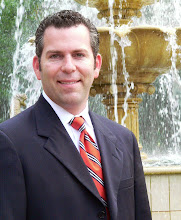Check out this trailer to see if you'd be interested:
The film focuses on Dom Cobb, whom Peter Travers in his review in Rolling Stone calls".. a professional invader of the subconscious played with action-star ferocity and emotional heft by Leonardo DiCaprio. Corporations, like the one run by Mr. Saito (Ken Watanabe), hire Dom and his crew to get inside people's heads."
Get inside my head is exactly what this film did, and if you haven't seen it--make plans to go, but be prepared to be confused. Or befuddled. Or enlightened, as the case may be. I know that I was all three before the film finished it's plunge through three layers of dream space, subconscious "limbo" and sudden shifts from past to present to future time.
In case you'd like to see the movie, I won't go in to every twist and turn of the labyrinthian plot. I would like to focus in on one aspect of the film that struck me as fascinating. It did, at least, after my wife noticed it. "Did you notice there were only two main female characters?" she asked. (I nod my head semi-intelligently) And did you notice that the younger woman (Ariadne) leads Cobb out of his regret over his wife (Mal)?" (again the semi-intelligent head nod).
That's when all the classic Greek and Roman mythology I had studied once upon a sophomore year came bubbling to the surface. (Thanks Joe Elias and Lou Ledbetter!) Ariadne was the daughter of King Minos of Crete. Crete had a lovely tradition of accepting sacrifices from Athens to feed their nasty monster the Minotaur, held at bay in a bewildering labyrinth. (see the connection coming?) Theseus was among the third group of unwitting sacrifices, but Ariadne comes to his rescue by LEADING HIM OUT OF THE MAZE. Just like Ariadne does for Mr. Cobb in the amazing movie Inception.
So what? Well, beyond a cleverly placed classical allusion, Christopher Nolan suggests to us a powerful principle. Ariadne (the maze maker and breaker) helps Cobb overcome his regret over his wife Mal (that means "bad or evil" in Latin) He has trapped himself in a prison of regret. In a very insightful review of the film, we are reminded that a recurring line in the movie addresses that regret. “Do you want to become an old man, filled with regret, waiting to die alone?”
Without spoiling the entire plot, Dom Cobb encases his regrets throughout life in a prison-like structure in his mind, revisiting them in tortured dream sequences. Ariadne discovers this self-torture, confronts him, and ultimately leads him to the only way out of regret--forgiveness. Just as in the classical myth, Ariadne leads him along the thread of past mistakes away from the monster named regret.
 |
| Theseus & Minotaur |
Of course the answer to that repeated question for me is "NO" I don't want to be an old man, filled with regret. But like Cobb, I do keep past mistakes locked away where no one can see, like a Minotaur in my mind. I offer up sacrifices periodically to appease my guilt, but those sacrifices are never enough. Cobb was trapped, and the guilt increased, demanding more and more of his life in order to be pleased. With the character Fischer in the film, we face those like a father who their whole life has been "DISAPPOINTED" in us. Regret--living in the past--will consume you like a ghastly Minotaur.
Do you have an Ariadne that can uncoil the thread of forgiveness for you? I know forgiving others is hard, but forgiving myself is the hardest. Somehow that trap of self-punishment seems appropriate, but its inevitable end is the maze of regret. I loved the movie Inception, and it has planted the idea in me to face what is MAL (evil) in my life, and banish the "shade" of failure through forgiveness. Otherwise, I will be forever trapped. What do you think?







